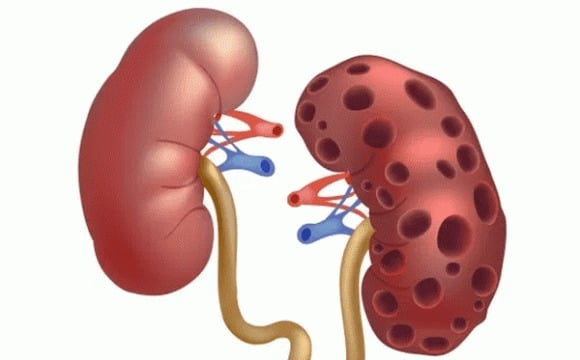## The Dangers of Discontinuing Medication for Nephrotic Syndrome: A Serious Mistake with Severe Consequences
The Nephrology, Urology, and Hemodialysis Center at Bach Mai Hospital has reported numerous cases of relapsing nephrotic syndrome due to a critical mistake. Most of these patients had previously been diagnosed and successfully treated for nephrotic syndrome. However, their biggest mistake was discontinuing their medication without medical advice, leading to severe complications, including significant kidney damage.
Dr. Dao Thi Thu, a specialist at the Nephrology, Urology, and Hemodialysis Center, explained that patients often mistakenly believe that their disease is cured when symptoms such as edema subside or laboratory results improve. Additionally, some patients independently research the side effects of their medications and decide to stop taking them without consulting their doctors.

In reality, nephrotic syndrome requires long-term treatment, including an initial aggressive phase to achieve complete remission, followed by maintenance therapy to stabilize the disease. The duration of treatment depends on the individual patient’s case.
Dr. Thu urgently warns that patients diagnosed with nephrotic syndrome must not discontinue their medication without medical advice, even if edema has subsided.
“Discontinuing medication without medical supervision can lead to kidney damage recurrence, resulting in severe complications such as thrombosis, infections, and even severe renal failure requiring dialysis,” emphasized Dr. Thu. “This is an extremely dangerous mistake that we always emphasize to our patients to avoid.”
The symptoms of nephrotic syndrome include edema, typically appearing in the face (such as swollen eyelids) in the morning and then progressing to the legs. If left untreated, severe cases can cause fluid accumulation in body cavities, such as the abdomen, pleural cavity, and pericardium. Additionally, patients may experience reduced urination, foamy urine due to high protein levels, and blood in the urine. These signs warrant immediate medical attention for timely diagnosis and treatment.

Dr. Thu also noted that uncontrolled nephrotic syndrome could lead to life-threatening complications, including infections such as pneumonia, cellulitis, and primary peritonitis. Other possible consequences are blood clots (affecting the lower limbs, lungs, or brain), renal failure (both acute and chronic), electrolyte imbalances, and medication side effects.
Therefore, patients must undergo regular check-ups and strictly adhere to the treatment regimen prescribed by nephrology specialists. It is crucial to have blood and urine tests done a day before running out of medication to allow for timely adjustments to the treatment plan. Patients should refrain from purchasing medication based on old prescriptions without medical advice.
Additionally, patients should pay attention to their diet, ensuring adequate protein intake (1-1.5g/kg body weight/day), reduced salt intake (<2g/day), and limited consumption of sweets and unhealthy fats. Moreover, annual flu shots and vaccinations against pneumococcus and hepatitis B are essential to protect against infections.





































